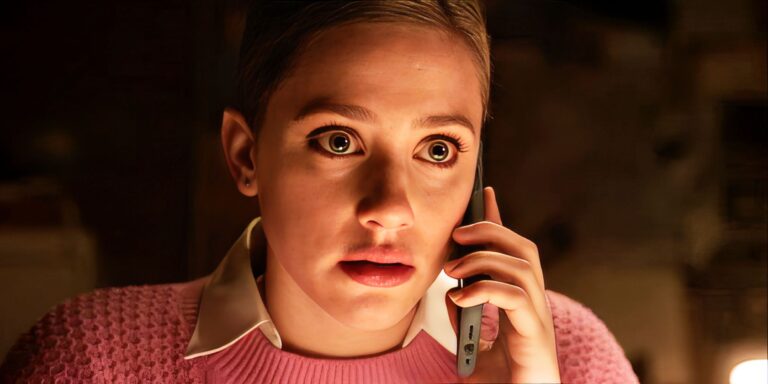When Riverdale first premiered, it was totally different out of your typical teen drama. It was a trendy, moody, and genuinely intriguing re-imagining of the beloved Archie Comics characters, casting them in a darkish, Twin Peaks-esque thriller. Its world skillfully balanced gritty small-town secrets and techniques with the acquainted tropes of highschool life. The preliminary seasons delivered partaking character arcs and storylines that felt each stunning and earned, promising a contemporary tackle a traditional universe. Many viewers miss Riverdale’s authentic vibe.
But, because the collection progressed, one thing basic shifted, departing from its authentic enchantment. The fastidiously constructed mix of realism and quirky attraction of the CW series started to unravel, slowly at first, then with rising pace. What began as a compelling whodunit ultimately reworked right into a present that appeared to thrill in its personal escalating absurdity, leaving many long-time viewers questioning what occurred to the grounded thriller they as soon as adored.
Riverdale Season 3 Is When The Present’s Tone Began To Change
In Distinction, The Simplicity Of Season 1 Centered On Compelling Character Dynamics
Season 1 accommodates a few of the best Riverdale episodes, drawing in viewers with its clear, concise, and well-executed thriller, permitting for natural character growth. Whereas the Black Hood launched a particular tonal shift, bringing a assassin immediately impacting the core 4, it nonetheless match fairly effectively. There have been some missteps, however total, it made sense. Nonetheless, issues began to vary in season 3, with extreme filler and convoluted leads that bloated the plot and obscured key particulars. Whereas season two retained a few of the present’s preliminary tone, the cracks have been beginning to present.
The third season launched two competing mysteries, The Farm and the in-universe Dungeons and Dragons, “Gryphons and Gargoyles”, which in the end diluted the general influence. The Farm storyline, regardless of its intriguing premise, veered into the comical, shedding its potential for real sinister enchantment. This era marked a definite departure from the grounded, mysterious tone of the early seasons, setting the stage for the present’s more and more weird trajectory.
Riverdale’s Later Seasons Included The Campy Aspect Of The Archie Comics
This Typically Devolved Into Chaos And Confusion
Riverdale‘s later seasons absolutely embraced the campy and outlandish parts usually discovered within the authentic Archie Comics, a stark distinction to its preliminary grounded strategy. Character arcs, like Cheryl Blossom’s, exemplify this variation. Beginning as a bitter but redeemable determine in season 1, Cheryl confirmed real progress by the tip of season 2, suggesting a journey in the direction of changing into a greater individual.
Nonetheless, her subsequent involvement in a succession of cults and more and more weird antics showcased the present’s pivot in the direction of the absurd. Whereas surprisingly likable, her actions turned progressively unhinged, highlighting the collection’ consolation with embracing its extra outlandish aspect. This willingness to lean into the inherent weirdness of the supply materials turned a defining attribute of Riverdale‘s later run, transferring away from real looking highschool drama to embrace supernatural and fantastical parts.
Associated
10 Harsh Realities Of Rewatching Riverdale Season 1 In 2024
Riverdale had a big influence on fashionable tradition whereas it aired. Nonetheless, there are some harsh realities upon rewatching Riverdale season 1.
Considered one of Riverdale‘s early triumphs was the introduction and exploration of “Darkish Betty”, a plot level that ingeniously subverted the sometimes healthful portrayal of Betty Cooper in the Archie Comics. In later seasons, makes an attempt to elucidate Betty’s darkish aspect with a “serial killer gene” crashed and burned, failing to recapture the preliminary intrigue. Because the collection leaned additional into the outlandish, Betty’s darker tendencies usually felt much less like a real psychological battle and extra like simply one other quirky attribute, which means the preliminary shock and intrigue ultimately pale.
Riverdale Grew to become Self-Aware About Its Bizarre Tales And Totally Embraced Them
It’s Overly Self-Conscious, Making It Extra Kitsch Than Camp
As Riverdale progressed, it seemingly turned self-conscious of its more and more unusual narratives and, moderately than making an attempt to rein them in, absolutely dedicated to the absurdity. Seasons 3 to six are a blur of disconnected and infrequently irrelevant storylines. As an example, Jughead’s enrollment at a non-public boarding college with a secret society in season 4 in the end had no lasting influence on the present. The perplexing introduction of Jellybean’s eerie however inconsequential tapes, adopted by her unexplained disappearance, additional illustrates this development.
The post-high college time bounce, which conveniently severed the core 4’s friendships, underscored the present’s prioritization of plot gadgets over character consistency and real looking growth. This embrace of the outlandish, even on the expense of narrative cohesion and character integrity, signaled a deliberate shift within the present’s id. Whereas a few of these moments have been enjoyable, the present’s steady descent into the much less real looking cemented its dedication to its new, campy id – usually, it comes off as self-aware moderately than pure camp.
Riverdale Ought to Have By no means Deserted Its Authentic Premise
The First Couple Of Seasons Stay A Consolation Present
A prevailing sentiment amongst long-time viewers is that Riverdale would have benefited immensely from staying grounded in its authentic premise. Season 1’s success stemmed from its clear, concise thriller, relatable character growth, and depiction of an enchanting city with regular life parts like Archie’s music profession, highschool soccer, functioning emergency companies, and, naturally, milkshakes at Pop’s. The aesthetic and soundtrack of the early seasons contributed to a way of actuality that has since been misplaced. This preliminary tone, with its ’50s revival vibe and central homicide thriller, clearly drew inspiration from cult classics like Twin Peaks.
The drastic tonal shift has resulted in a present that, regardless of its preliminary success, bears little resemblance to its former self.
The aesthetic and soundtrack of the early seasons contributed to a way of actuality that has since been misplaced. The drastic tonal shift has resulted in a present that, regardless of its preliminary success, bears little resemblance to its former self. The core 4, as soon as grounded and growing characters, turned virtually unrecognizable. The abandonment of its authentic, extra grounded thriller in the end led to a present that, whereas usually entertaining in its absurdity and having crossovers with Sabrina, sacrificed narrative coherence and character consistency for more and more unrealistic and infrequently inconsequential Riverdale storylines.

